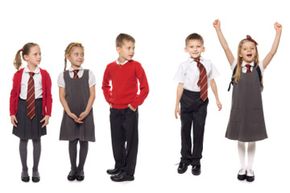In the United States, one of the basic rights afforded to all children is a free education offered by the public school system. Despite the free public schooling available in all 50 states, many families choose to send their children to private schools instead, some of which come with a substantial annual tuition bill. In fact, nearly 24 percent of all schools in the United States are private, and 11 percent of children who attend school are matriculating at these private institutions [source:National Center for Education Statistics].
While some of the most exclusive private schools in the country are the fiercely competitive preschools in New York City, private schools can be found all across the country. These schools range from the religious to the secular, to schools for gifted children to those aimed at helping students with learning disabilities. No matter what your child's needs, interests, skills or age, there's surely a private school where he or she can thrive.
Advertisement
So, with free education a guarantee, why do parents choose private schooling? Their decision is often due to poor-quality or overcrowded public schools nearby. In this instance, parents may feel that their children will obtain a better education at a private school, regardless of the added cost. Other families may choose private schools because they want their children to receive a religious education or to focus on special skills or talents. Private schooling can also be the answer for children who have special needs or developmental disabilities.
Ready to learn more? Read on to find out about the different types of private schools and how to find the one that's best for your family.


